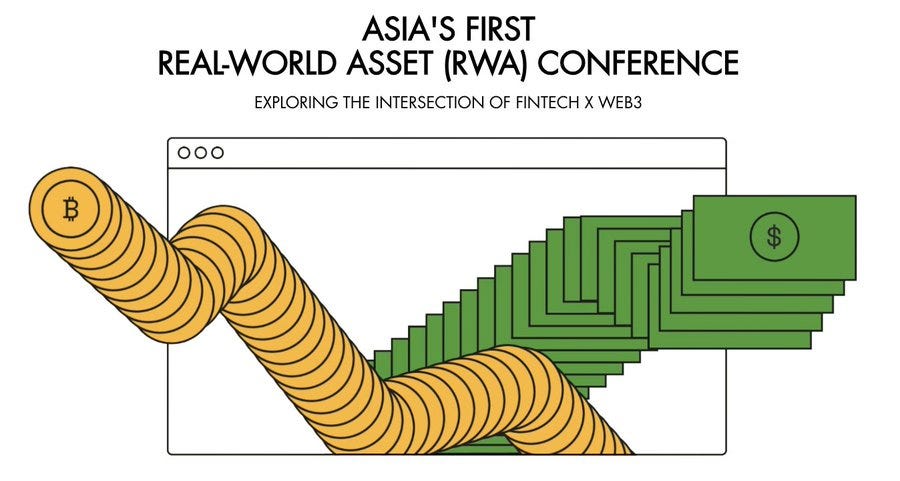
[Opinion] 3 Key Changes to Expect in South Korea's Virtual Asset Market Following the Election
Progressive Policies Set to Reinvent the Landscape for Investors and Businesses
According to the results of today's legislative elections in South Korea, the Democratic Party and other liberal parties are expected to secure nearly 200 out of the 300 seats in the National Assembly. This outcome naturally leads to the prediction that over the next four years (National Assembly Term), major regulations in the country will lean towards progressive legislation compared to more conservative ones. Let's examine the potential changes based on the Democratic Party's campaign promises, given today's election results.
1. Background
During the campaign, the Democratic Party presented various pledges to invigorate the digital asset market. Above all, the party focuses on stimulating the virtual asset market through measures such as listing Bitcoin ETFs and alleviating tax burdens on individual investors. This suggests that individual investors will be able to invest in virtual assets in a more convenient and advantageous environment.
2. Crypto-related pledges by the Democratic Party
The Democratic Party's main pledges focus on 1) promoting the listing of a Bitcoin spot ETF, 2) easing the tax burden on individual investors' crypto investments, and 3) institutionalizing the crypto market and strengthening investor protection.
The Party's policy direction is focused on promoting the growth and development of the cryptocurrency market, while enhancing investor protections to improve the health of the market. If realized, these pledges are expected to create a safer and more convenient environment for retail investors to invest in crypto within the institutional framework.
1) Bitcoin ETF Listing and Tokenized Securities Institutionalization
The Democratic Party has stated that it will allow the issuance, listing, and trading of spot Bitcoin ETFs. This will serve as an opportunity for major virtual assets, including Bitcoin, to be incorporated into the existing financial system, similar to that of US ETFs. Furthermore, the party plans to promote the adoption of blockchain in traditional financial markets by legislating the issuance, distribution, and disclosure systems for tokenized securities.
Although Bitcoin spot ETFs and security tokens have been discussed, progress has been slow. It's been a year since the guidelines for security tokens were released, but the legislation has yet to pass Congress. It will be interesting to see if the Democratic Party will be able to pick up the pace.
2) Rationalization of virtual asset taxation and loss deduction benefits
The Democratic Party has announced that it will significantly raise the tax exemption threshold for virtual asset investments from the current $2,000 to $40,000. This is expected to greatly reduce the tax burden on small-scale investors. Additionally, the party plans to introduce loss offsetting and a five-year loss carry-forward deduction for losses incurred from virtual asset investments. These tax benefits will incentivize individual investors to participate more actively in the virtual asset market.
The ruling party pushed for additional delaying of crypto taxation. The government and the National Assembly have already pushed back the implementation date of crypto taxation once to January 2025, but the outcome of the general election makes it unlikely that it will be further extended.
The Democratic Party is also insisting on implementing the financial investment income tax as scheduled next year. The financial investment income tax is a system that imposes a 20% tax on income over KRW 50 million (approx. USD 36.5K) in stocks and KRW 2.5 million (approx. USD 1,800) in overseas stocks. As the tax burden on the cryptocurrency market is relatively low, there is a possibility that capital will flow into the cryptocurrency market.
3) Restraining exchanges and strengthening investor protection
The Democratic Party is also showing moves to curb the dominance of large exchanges by integrating the order books of individual exchanges and commoditizing exchange services. Similar actions have occurred in Nationalized Exchanges in Indonesia as presented in our previous reports. This is interpreted as a measure to prevent the concentration of trading on specific exchanges and to enhance market fairness. These policies are expected to make a big difference in the market, especially in South Korea, where Upbit has long been the dominant player with a market share of 7-80%.
Moreover, the party plans to protect investors by introducing a "blue listing" system, allowing only high-quality virtual assets to be listed. This initiative mirrors the 'White/Green List System' employed by the Japan Virtual Asset Exchange Association (JVCEA), which provides a framework for vetting crypto assets through a self-regulatory approach in Japan. Under the new system, asset screening would be conducted through an independent third-party institution, such as the Korea Exchange, thereby enhancing transparency in crypto asset listings.
This policy is considered a necessary measure for the long-term and healthy development of the domestic cryptocurrency market. Currently, there is a self-regulatory organization, the Digital Asset Exchange Association (DAXA), which focuses on Korean won exchanges, so it remains to be seen how the relationship with them will be.
3. Conclusion
It will be interesting to see how the 'Virtual Asset User Protection Act' and other legislation will be implemented in July. If the Democratic Party's crypto pledges are implemented smoothly, the Korean crypto market is expected to move past the current ambiguous stage and have more clear and organized rules of the game.
In addition, it is expected to promote the adoption of blockchain by traditional financial institutions, such as token securities and crypto ETFs, which have been progressing slower compared to other countries. If a sound and safe environment is established with various investment and business opportunities and investor-friendly policies, this will help revitalize the Korean virtual asset market in the future.
Get 20% off your SEABW ticket today!
Join us at the biggest blockchain event of the year in Southeast Asia! This is your chance to connect with industry leaders, explore innovative blockchain solutions, and engage in valuable networking opportunities. The event runs from April 22nd to 28th in Bangkok.
Exclusive Offer for Our Readers: Use code TIGERR20 to receive 20% off your general admission tickets. Tickets are limited — secure yours now to ensure your spot at this event. (Discount automatically applied through the link below).
Get 30% off the biggest SEABW side event: ONCHAIN 2024
Tiger Research is a proud media partner of ONCHAIN 2024.
As Asia’s first Real-World Asset conference, the event will feature speakers including leaders from global financial institutions, leading RWA protocols and regulators.
Get a glimpse into the future of RWA tokenization at ONCHAIN 2024: April 26th, Bangkok!
Enter code “tiger30off” to receive 30% off your tickets to the event.
Disclaimer
This report has been prepared based on materials believed to be reliable. However, we do not expressly or impliedly warrant the accuracy, completeness, and suitability of the information. We disclaim any liability for any losses arising from the use of this report or its contents. The conclusions and recommendations in this report are based on information available at the time of preparation and are subject to change without notice. All projects, estimates, forecasts, objectives, opinions, and views expressed in this report are subject to change without notice and may differ from or be contrary to the opinions of others or other organizations.
This document is for informational purposes only and should not be considered legal, business, investment, or tax advice. Any references to securities or digital assets are for illustrative purposes only and do not constitute an investment recommendation or an offer to provide investment advisory services. This material is not directed at investors or potential investors.











